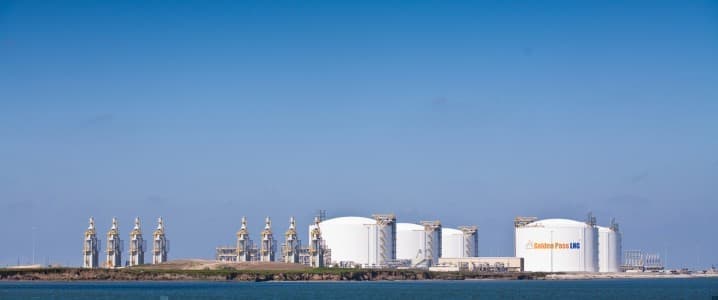A study from Cornell University released last November suggested that LNG is worse for the climate than coal. Little did anyone know at the time that this study would put the U.S. federal government in a dilemma at a time when the country leads the world in LNG exports.
The nature of the dilemma is of the sort that could put a quick end to that leadership. Either that or cost the Democrats some votes from environmentalists.
The study that created the dilemma was authored by Cornell biogeochemist and ecosystem scientist Robert Warren Howarth. First presented by prominent environmentalist Bill McKibben in the New Yorker, it argued that LNG is worse than coal for the climate because its production involves methane leaks at every stage of the process. In that presentation, Howarth told McKibben that “ending the use of LNG must be a global priority.”
Environmentalists were quick to grab the opportunity as several new LNG projects are awaiting final approval from the federal authorities to begin construction. They zeroed in on Venture Global’s CP 2. If built, it will be the largest U.S. LNG facility with a capacity to produce up to 24 million tons of liquefied gas annually.
It was probably because of its size that activists decided to target CP 2, and the attack yielded results. The Biden administration was putting the final touches to approving the project, but after the activist offensive unfolded, the White House said it would carry out a review of federal LNG project approval procedures.
Related: US Oil, Gas Drillers Add 1 More Rig As Production Plummets
The news, first broken by Politico citing unnamed sources from the administration, sparked worry in the energy industry as many suspected it would only lead to slower approval times—and possibly fewer approvals as the assessment would include climate impacts.
Reuters noted how approval times for new LNG capacity had changed over the last three administrations: under Biden, the approval process has gone from seven weeks (under Trump) to eleven months. Even during the Obama presidency, approvals for LNG plants took less than they do now under Biden, data from the Department of Energy showed.
The news of the review did not put activists at ease, however. On the contrary, the attack continued, with calls for an end to the LNG industry because of its polluting impact on coastal communities in Louisiana, according to those same communities, and because it’s bad for the global climate, according to other activists, among them both the author of the study and several prominent green organizations.
Amid the increasingly louder noise, the White House decided to postpone any decision it might make on the issue. This week, the White House confirmed the information, saying it will pause all new LNG capacity approvals. Per reports, the delay could extend until after the elections in November—a move that highlighted the dilemma that the administration has found itself in.
On the one hand, the U.S. has become the world’s largest LNG exporter. This is quite a favorable position from a geopolitical point of view. Europe, notably, relies on the U.S. for most of the gas it buys after flows of Russian gas via pipelines were decimated and the EU swore off Russian gas for the future. For national security advisers, this position as top exporter certainly counts as relevant to their area of expertise.
“Any action or future plan to hinder American LNG exports, including the White House’s reported pause on CP2, is misguided policy that undermines the US economy, our allies’ security, and global emissions goals,” said the chief executive of the American Exploration and production Council, the association of oil and gas independents, in comments on the news cited by EnergyWire.
Venture Global itself was blunter in its reaction to the news about the delayed decision: “It appears that individuals within the White House are trying to force policymaking through leaks to the media,” Shaylyn Hynes, a spokesperson for the CP2 developer said in a statement. “This continues to create uncertainty about whether our allies can rely on US LNG for their energy security.”
It is difficult to argue with that. Such delays indeed create uncertainty not only for the project currently in the focus of the public attention but for others, too—some 16 projects besides CP 2. Yet the delay was unavoidable.
The Biden administration came into office on a wave of promises to set the United States on the road to a net-zero energy system and gradually wean it off oil, gas, and coal. At the time, gas was not getting too much negative attention, but talk about methane leaks was starting to get loud.
Four years later, natural gas is legitimately a target – gas stoves are claimed to cause asthma, methane has, in some circles, replaced CO2 as the ultimate climate enemy, and LNG is twenty times as bad as coal on a good day.
It is the promises for a transition that played a bad joke on the Biden administration. It tied its energy policies to the commitments made on the campaign trail even as that same administration realized the political advantages of producing a lot of hydrocarbons and exporting record volumes of them. It was Biden who promised Europe that the U.S. would save it from the gas shortage in 2022. And he lived up to the promise though through no effort of his own.
Now, the federal government must either disappoint its allies across the Atlantic and essentially sign the death sentence of the LNG industry or enrage potentially thousands of voters from the deep green end of the political spectrum.
By Irina Slav for Oilprice.com
More Top Reads From Oilprice.com:
- Are Oil Markets Underpricing Geopolitical Risks?
- Red Sea Disruptions Force Saudi Aramco to Slash Prices
- Cold Weather Has Increased Range Anxiety For EV Drivers



















However, this won’t last long since capitalist America can’t resist the allure of money.
Dr Mamdouh G Salameh
International Oil Economist
Global Energy Expert